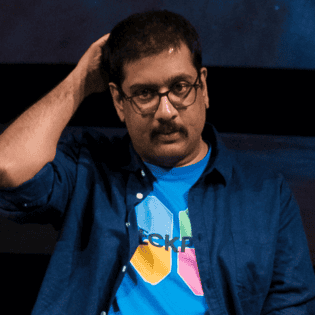Platforms:
Xbox One, PS4, PC, Xbox Series X|S
Released:
November 10, 2020
Publisher:
Sega
Developer:
Ryu Ga Gotoku Studio
I’m disappointed to say I couldn’t finish Yakuza: Like a Dragon in time for this review. I am currently 55 hours in, stuck on an outrageously tough boss at the end of a dungeon with no save points. This particular dungeon is far shorter than the others I’ve encountered (the boss is clearly the centerpiece) so when I next load my save file, my party can breeze through the standard enemies and head straight for the showdown. Or I could stop by a restaurant first to give myself a temporary stat boost. Or I could assign different jobs to my party to play around with new abilities. Or I could take part in one of the many, many sidequests and minigames dotted throughout this densely packed open world. No matter what I choose to do, I can’t wait to get back into it.
After Yakuza 6 bid an epic farewell to series protagonist Kazuma Kiryu, and after the remake of Yakuza 2 ensured that each game in Kiryu’s adventure is now in HD, it felt like the end of an era. Ryu Ga Gotoku Studio could have easily continued the series’ tried-and-true formula: a button-mashy action game starring a brooding unemotional hero. Instead, they took a huge risk.
Yakuza: Like a Dragon is still a Yakuza game. The story is still a political soap opera set amidst the grimy underworld of modern-day Japan, but features almost entirely new characters, so you don’t need to know about the previous games to jump in. Our new hero wears his heart on his sleeve, and cares more about helping people and making friends than fighting. And while you’ll still be mashing buttons, the game is a turn-based RPG. It boggles the mind that the devs made such drastic changes to one of Sega’s flagship franchises, but somehow, it all clicks. Yakuza: Like a Dragon has easily become my favourite Yakuza games, but more than that, it’s one of the best RPGs I’ve played all year.
Gangsters with Feelings
Our wild-haired protagonist is Ichiban Kasuga, newly released from prison after serving 18 years for a crime he didn’t commit. Kasuga doesn’t care about vengeance, he just wants his friends back. Kasuga is the antithesis to Kiryu in almost every way. He’s not afraid to show his emotions, and would rather talk things out than resort to fisticuffs. Kasuga doesn’t fight because he’s bound by honour, but because sometimes it’s all he can do to help. As it stands, I have currently cried three times while playing Yakuza: Like a Dragon, and a couple of those times, Kasuga was crying along with me. He is a sweetheart, and I love him.
Kasuga is a breath of fresh air for the franchise, and is a large part of why the series’ RPG transition works so well. You see, Kasuga grew up playing Dragon Quest. He wants to be a hero, but he knows that a hero needs a party.
Throughout Kasuga’s tale, he will meet and befriend several characters who permanently join his crew. Party members can’t be controlled outside of battle, but follow Kasuga around wherever he goes. They have their own personal reasons for joining the team, and each of them are integral to the overarching plot. Sometimes they laugh together, sometimes they argue, and very often they call each other out on their BS. They’re a family. A family that fights a lot.
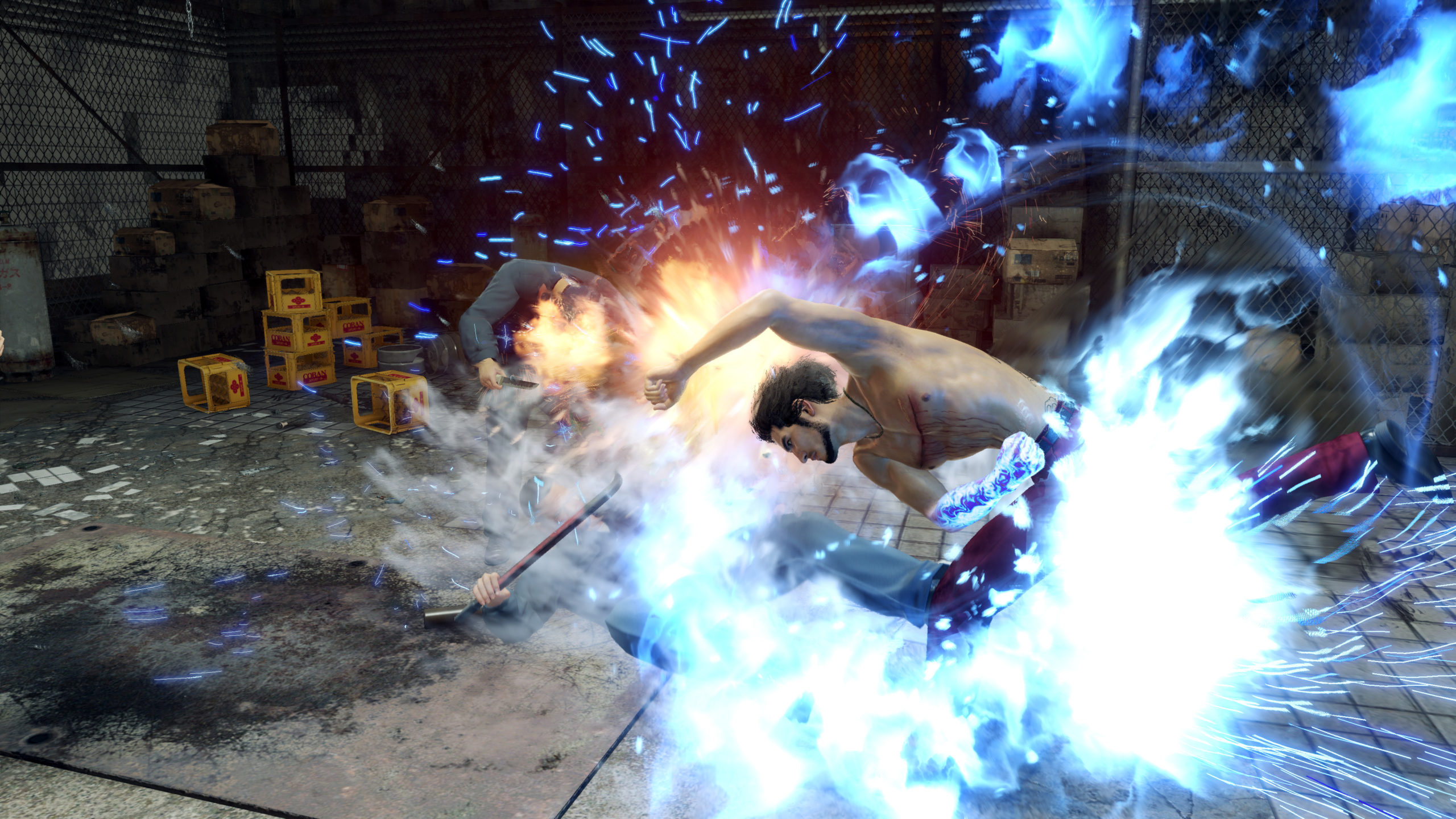
Random Encounters
While walking around town, you will encounter roaming gangs of enemies who you can run away from, or run towards to trigger a battle. Yakuza: Like a Dragon’s combat smartly takes inspiration from heavyweights of the turn-based JRPG genre: particularly the early Dragon Quests and Final Fantasy’s, and the more recent Persona’s.
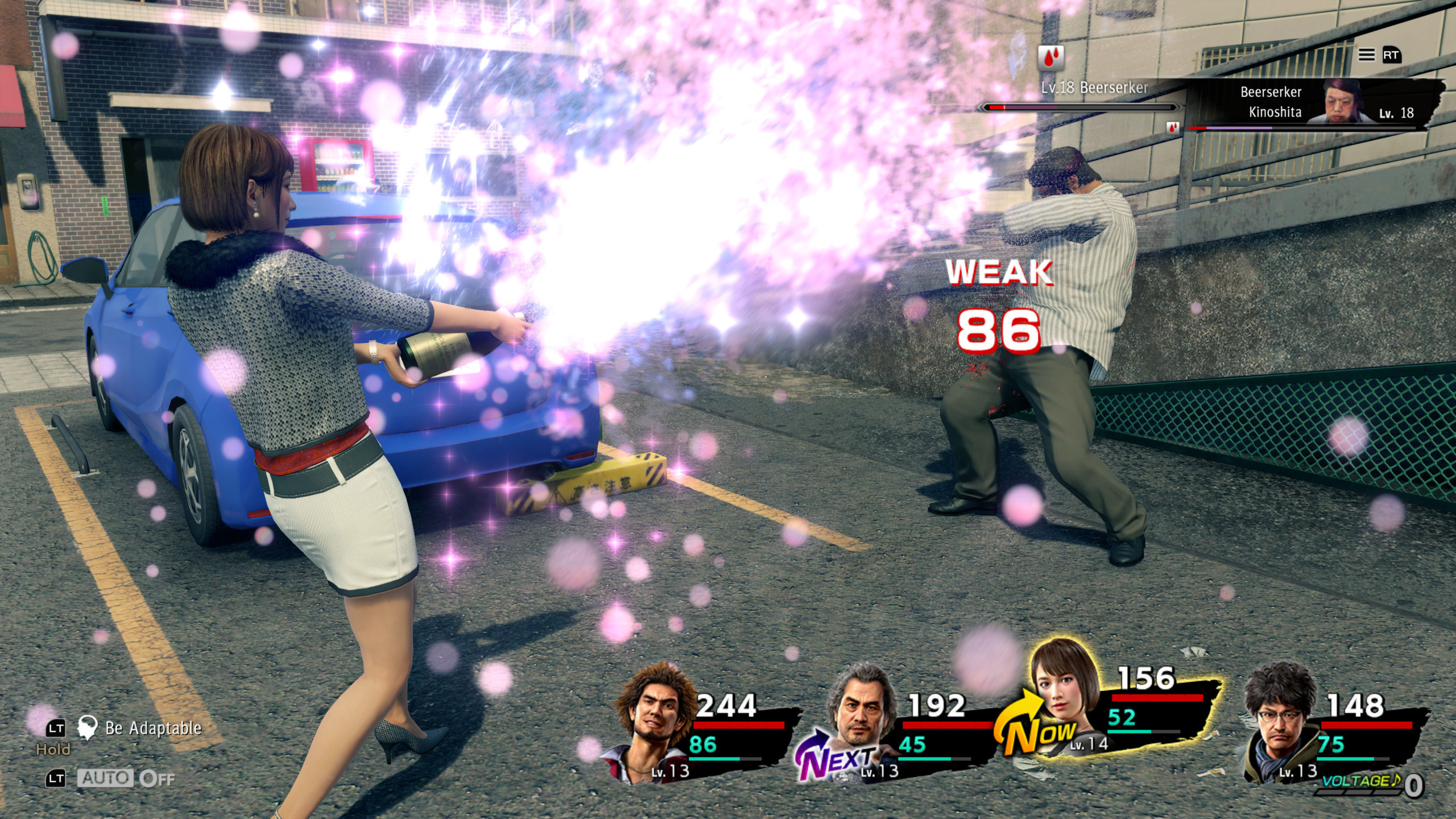
Abilities are mapped to the face buttons, and shortcuts can be assigned to the direction buttons, so trawling through menus is kept to a minimum. Despite being turn-based, combat is still fast and snappy, and you always have plenty to do. During the enemy’s turn, you can manually block their attacks, so timing is crucial to minimise damage. Certain skills require you to hammer the Square button (on PlayStation) or press the Triangle button with perfect timing in order to increase damage. You’re always doing something during combat, even when it’s not your turn. If fighting through trash mobs (who are sometimes creepy dudes wearing trash bags) gets repetitive, there’s a handy auto-battle mode that you can turn on and off with a button, during which party AI can be customised on the fly.
If there’s one downside to combat, it’s characters and enemies constantly moving around while you’re deciding what to do. This makes area-of-effect attacks very imprecise, sometimes only hitting one enemy as three others dodge out of the way at the last minute. This could be mitigated somewhat if you were able to move your character during their turn, but since you can’t, it’s a bit of a crapshoot. Still, once you get used to the flow of combat, it becomes easier to figure out when to properly deploy your big-hitting abilities. Taking out an entire group of enemies with one swing of a baseball bat is as satisfying as it sounds.
Get a Job
Among the many RPG mechanics that Yakuza: Like a Dragon introduces to the series, the biggest has to be an honest-to-goodness job system. If you’re not aware, jobs function similarly to classes in other RPGs, with a character’s job dictating their stats and abilities. But a character can switch between jobs as they please, with one character being proficient with as many different jobs as you’re willing to throw at them.
In-universe, each job is a different profession that a character can sign up for at a temp agency (which is an idea so simple it should win an award), and you can return to the agency at any time to switch jobs. Jobs level up independently from characters, so if you switch to a new job at level 1 you’re still strong enough to take on enemies at your own character level. With every other job level comes a new ability, and specific abilities (called Character Abilities) are permanently saved to your character, so you can keep using it with other jobs.
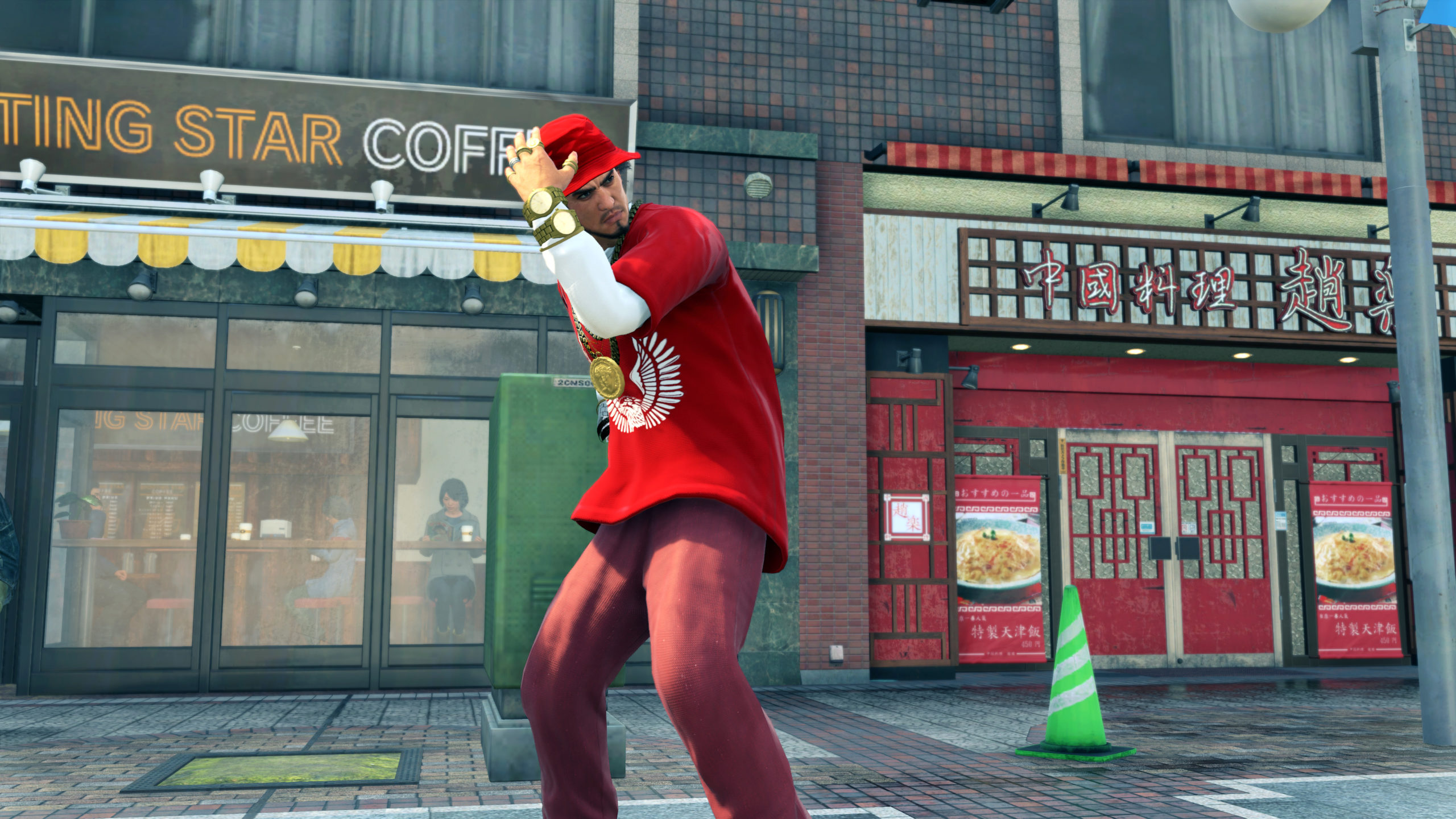
It’s always fun mixing and matching different job combinations, and (apart from some glaring exceptions which I’ll get into later) they’re all so creatively designed. My personal favourite job is Breaker, a job which has you breakdancing at enemies to deal damage. Marvelous stuff.
Yakuza: Like a Dragon has many references to other JRPGs baked into its gameplay. Kasuga has Persona-style social stats (Confidence, Kindness, etc) that can be improved by selecting certain dialogue options. There’s bond levels with each character that can be levelled up to gain bonuses. There’s treasure chests (big glittery safes) hidden throughout the world and dungeons. One game-spanning sidequest is a hilariously violent parody of Pokémon. There’s even a gosh-darn summon system! The fact that all these mechanics are implemented into a non-fantasy game set in real-world 2019 is astonishing.
Yakuza Side Story
Part of what makes Yakuza: Like a Dragon’s works as an RPG is how many RPG concepts were in the games already. Substories are now the fully-fledged side quests they were always meant to be. In these, Kasuga meets the larger-than-life denizens of Isezaki Ijincho (the gorgeous district of Yokohama the game is set) and embarks on a zany adventure with them. As always, substories are a light-hearted distraction from the seriousness of the main plot, and Kasuga fits into tonal shifts these perfectly. While previous substories saw Kiryu as the eternal straight man in a world of fools, Kasuga is a fool right along with them.
Substories often unlock brand new minigames, and boy howdy, are there a lot of minigames. While Yakuza staples like baseball, karaoke, and that tedious crane game return, as well as a bunch of classic Sega arcade games (including three different versions of Virtua Fighter), Like a Dragon brings a lot of new minigames to the series. Some of these minigames are so wild (some contain entire storylines within them), I don’t want to spoil them. If you’ve seen promo art for the game and you spot what you think is a ram wearing a business suit, you think correctly, and that’s all I’ll say about that.
With the implementation of all the RPG mechanics, minigames are more useful than ever. Some increase social stats, some increase your bond levels, and some unlock new features in other minigames. They’re not just a fun distraction; it helps to goof off.

Dubs v Subs
Sega has gone above and beyond with the localisation for Yakuza: Like a Dragon. Not only does it have full English voice acting (which the series hasn’t done since the PS2 era), but the English script and matching subtitles have been rewritten so dialogue flows smoother. It’s an impressive effort, and definitely helps make the game accessible to a wider audience.
However, my personal recommendation would be to play the game with Japanese audio if you can. I’d be more inclined to choose otherwise if this was a fantasy tale, but this is set in Yokohama 2019. Again, I’m glad the option is there for those who’d prefer it, and the English cast seem to do an admirable job from the little I heard of them (and it’s nice to see that most – but not all – of the English cast are Asian-American), but I felt an extra layer of dissonance between myself and the characters with it turned on. But I’m glad to have the option.
The Yakuza is a Boys Club
As much as I loved my time with Yakuza: Like a Dragon, there were a few issues I couldn’t ignore.
One of them involves Saeko, a member of Kasuga’s party. In the story, I found her to be an amazing character. She’s frustrated at the world around her, she doesn’t care who knows it, and most importantly, she is never punished for expressing her opinions. She’s an important part of the team, but that importance is not reflected in gameplay. See, the jobs available to each character are defined by their gender. While I think it’s an interesting idea, women only get half as many jobs as men do. And since Saeko’s the only woman on the team for a large part of the game, that gender imbalance is plain to see – and a bit grating.
Sure, Saeko’s jobs are enough to last her through the whole game, and an argument could be made that the men get more jobs for variety’s sake because there’s more of them on the team, but I couldn’t help but feel that the women got the short end of the stick here. While men get wacky jobs like breakdancer and chef, women get two separate jobs that use purses as weapons.
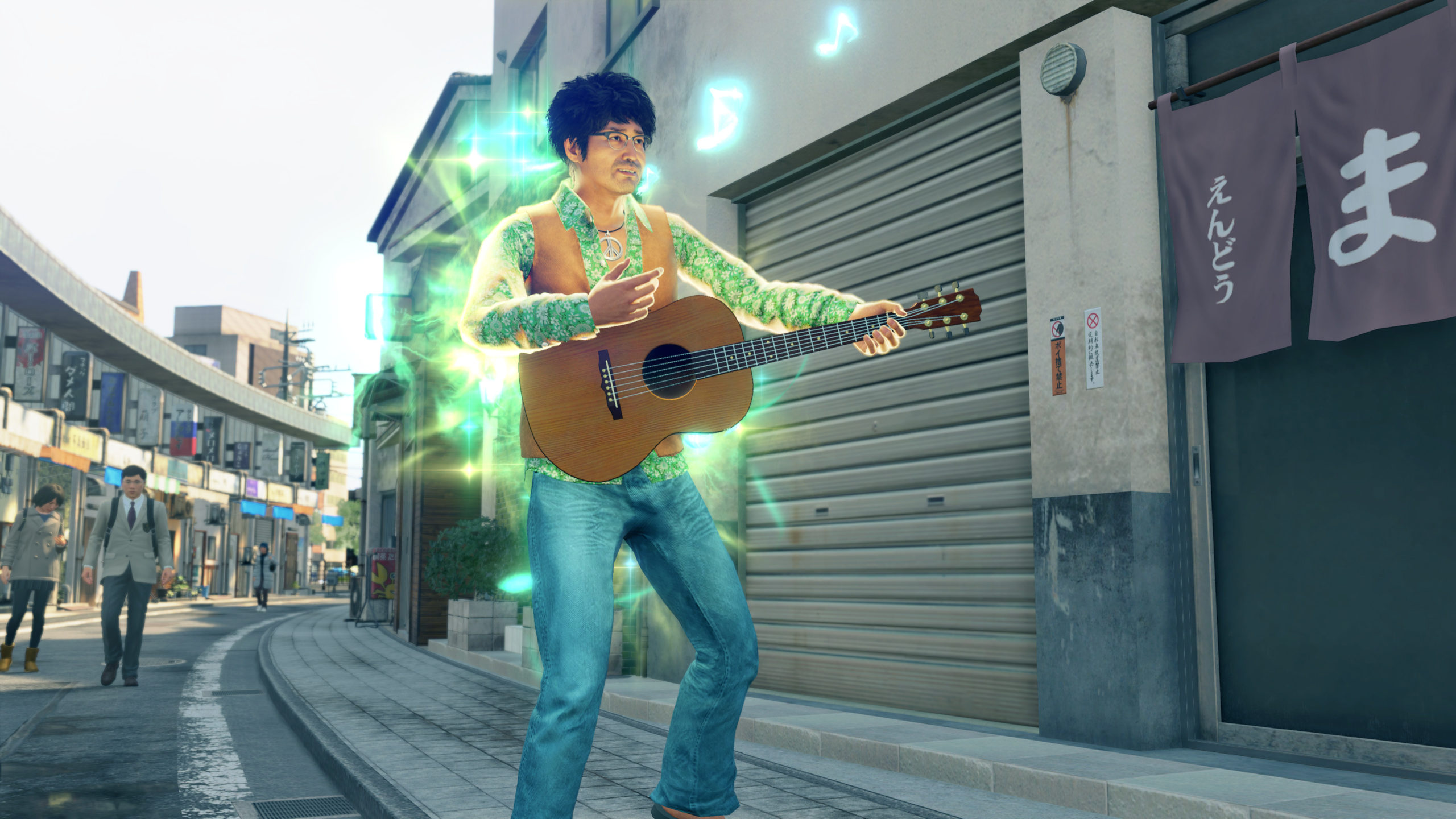
Yakuza has always had dude-focused plots, and Yakuza: Like a Dragon (which I realise does shorten to Yakuza: LAD) features a lot of powerful ladies as NPCs, but it feels like a missed opportunity that they’re not playable. If this game gets a sequel, and I very much hope it does, there needs to be more female characters in the party.
Similarly cringe-inducing is the game’s depiction of unhoused people. The game’s story attempts to earnestly highlight the difficulties of life for folks living on the street, but outside that the game resorts to offensive stereotypes. When an unhoused person joins the party, a few of his early abilities involve bad breath or summoning an army of pigeons. You will frequently encounter a random enemy labeled “Hungry Hungry Homeless”.
It’s sad to see an otherwise excellent game bogged down by these unfortunate design decisions. Yakuza: Like a Dragon makes great strides in making the series more diverse and accessible than before, but it clearly still has a long way to go.
9
Amazing
Positive:
- Wonderful, memorable characters
- Turn-based combat is quick and responsive
- Job system is addictively customisable
- There is so much to do, and it all matters
Negative:
- Combat could've been more precise
- Female characters don't have as many job options
- Shoddy representation of unhoused folks
Despite its very obvious shortcomings, I had an absolute blast with this game. Yakuza: Like a Dragon, in my humble opinion, is one of the best AAA RPG experiences of 2020, and I am shocked I just wrote that sentence. It pivots the series away from its action origins, and seamlessly enters the RPG genre with grace, style, and that trademark Yakuza bombast. There has never been a game like this before. My son – sorry, I mean Ichiban Kasuga is a wonderful new protagonist for the series, and I hope his story continues beyond this game. I played this on PS4, but this is a launch game for the Xbox Series X. If you’re looking for a fantastic RPG to play on your shiny new console, here it is. Now that this review is done, I’m going right back to playing it.
